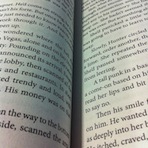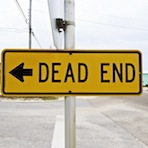If I can be that succinct. LOL My current workload is as such that I’m not doing a lot of reading right now. That will probably ease up in another month or so. But from what I have read in the last two weeks, here are my sum ups of 7 projects and 7 reasons why I passed.
1) Client referral – Post-apocalyptic adult fiction. Very cool world. Strong writing so the writer has talent but I just didn’t connect with the story/characters.
2) Client referral – adult literary thriller. Really talented writer but the work was very Cormac McCarthy THE ROAD kind of dark. Not my thing. I’m not going to be a good champion for that.
3) Client referral – women’s fiction. I thought it more young adult and asked author if they wanted to revise to be solidly in that realm. If so, I was willing to give it another read.
4) Anita pulled out for me – young adult fantasy. Had the coolest concept I’ve seen in a while but the work wasn’t quite ready. Wrote an editorial letter and asked the author to revise and send back to me. Hope this person does.
5) Client referral – Contemporary Young adult. Another really cool concept inspired by a real event but fictionalized. I didn’t connect with the main narrator which seemed crucial for this story.
6) Prev. published author – adult SF. Cool concept. Good writing. Just wasn’t right for me.
7) Sara asked me to look – Contemporary Young Adult – Good writing but the main narrator had a caustic voice. I wasn’t sure if I could spend a whole novel with that character.











